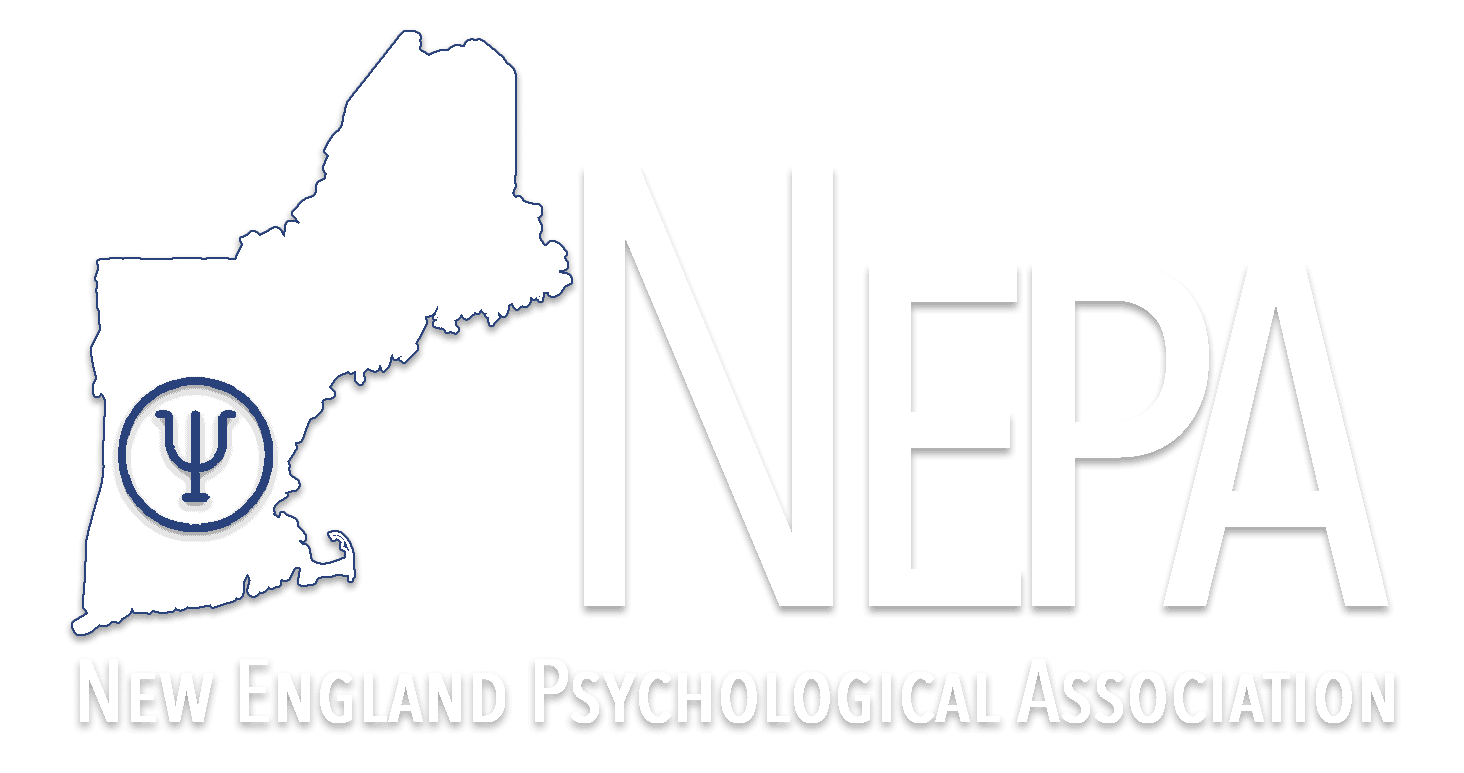Welcome!
NEPA 2022
This is your access point for NEPA 2022. Visit this page often for speaker updates and conference schedules.
9:00 AM
Dr. Burgess is an internationally recognized pioneer in assessing and treating trauma and abuse victims. In 1978 she received a call from the FBI to use her knowledge of sex crimes, victimology, criminal psychology, and research skills to identify, interview, and track down violent offenders and serial killers. She formed a collaboration with the FBI Academy to study serial offenders, and the links between child abuse, juvenile delinquency, and subsequent perpetration. She and FBI special investigator John E. Douglas helped develop a new type of criminal profiling of notorious serial killers and they went on to write the book, Mindhunter: Inside the FBI’s Elite Serial Crime Unit (1995), which was the basis for the fictionalized Netflix hit series Mindhunter (with the character of Wendy Carr being a fictionalized version of Dr. Burgess). Her talk today will focus on her experiences as discussed in her latest book, A Killer By Design.
The two critical features that basic scientists utilize consistently to model trauma, stress and maladaptive behavior are isolation and stress. During the pandemic, our laboratory became the world, and the fall-out was, as would be expected, dramatic and painful. In December 2021- Dr. Vivek Murthy – Surgeon General declared a youth mental health crisis. This presentation will center in research on isolation and stress and attempt to shed light on the brain changes underpinning campus mental health challenges and our need to enhance and prioritize community wellness.
This presentation aims to focus on positive psychology pedagogy, team experiential learning projects through a senior seminar course content and practical application of strategies across personal and professional settings. Presenters will highlight on diverse perspectives, creative thinking, teamwork approach and use of self-reflection model that facilitate students’ success and strengthening inclusive classroom learning by instructor. We will share both theoretical and practical frameworks of teaching, mentoring as well as empowerment strategies to demonstrate the scope of positive psychology that impact learning, cultural humility, social justice and collaboration that promote wellbeing domains. Finally, this presentation will highlight on students’ perspectives on their teamwork projects and learning outcomes. We intend to address the success and challenges of experiential team learning and application of positive psychology pedagogy in higher education. This symposium invites students, educators, researchers and training consultants to engage in discussion and reflection on the scope of this framework during COVID 19 pandemic for promoting well-being in academic settings.
Critical thinking is central to clinical psychology doctoral training and practice, underlying the scientific method and central to clinical formulations. As a key element of developing and evaluating explanations used to guide practice, the lack of consensus about its definition and measurement limit both training and clinically relevant evaluation of professional practice. As we move into our 4th year of efforts to overcome these limitations, we believe that a consensual understanding of critical thinking may be possible but complex and difficult to operationalize and implement soundly. Accordingly, based on our experience and research findings to date, we have turned to focus on the elements of critical thinking that best distinguish it from other forms of good thinking, including analytical, logical, scientific, and scholarly thinking. Specifically, critical thinking distinctively involves identification of one’s professional and personal assumptions and biases that might influence selection among explanations and recognition of the conceptual limits of the explanation one chooses to guide professional practice. In addition to simplifying and focusing the training and application of ratings of psychologists’ work by graduate students, this specification helps clarify the distinct role and nature of critical thinking in doctoral training and professional clinical psychology practice. This symposium will engage audience members in discussion of the refined rationale and
measurement of critical thinking we are presenting, including how critical thinking differs from other forms of good scholarly thinking, review of the revised scale, and consideration of materials to be rated, as well as audience members’ other reactions and recommendations.
Many individuals with mental health concerns are also impacted by challenges linked to the use and abuse of legal and illicit substances. Due to additional stress from the COVID-19 pandemic there has been an increase in substance abuse by young people and adults and the need for psychological support in this area has grown even greater. Unfortunately, there is a shortage of psychologists equipped to deliver these needed services, both on the assessment and the intervention sides of the equation. Youth from traditionally underserved populations are at even greater risk, especially if there are language and cultural barriers not being addressed by providers who are limited in their training in these areas. Research has told us that youth who are “feeling connected” (e.g., school connectedness, community connectedness) and supported have lower rates of risk engagement with a variety of self-destructive acts, including substance usage. In this session we will look at methods and practices useful to decrease risk engagement by all youth with substance usage, with a particular focus on ways to help decrease substance abuse risk for Latino/a students by learning more about assessment tools, the connection to bilingual and bicultural factors, and how risk varies by generation of acculturation. In this session we will consider the key lessons discovered from school- and community-based initiatives that have been determined to be most relevant to helping mental health clinicians be better able to help youth and young adults impacted by substance use and dual diagnosis concerns.
Mental Health Promotion Interventions for University Students: Future
Directions to Tailor Towards Student Identities and To Build Resilience
Morgan E. Browning, MA (1); Alexandra Morena, MA (1,2); Elizabeth E.
Lloyd-Richardson, PhD (1); (1) University of Massachusetts Dartmouth, (2) University of Massachusetts Lowell
Mental health is an enormous challenge for emerging adults given biological vulnerabilities and developmental stages and stressors but access to affordable care is limited. Universities are well positioned to offer a range of brief interventions and educational programs. This symposium discusses results from two brief interventions developed and piloted tested at the same university, the lessons learned, and future research and clinical directions. Mental Health Stigma Study: A randomized intervention targeting mental health stigma compared a standard educational video to a video including educational content plus lived experience stories. There were trends towards improved mental health and stigma for the education plus contact group. Students overall enjoyed the intervention. Targeting the intervention towards subjective norms of communities may be important. Gatekeeper Study: Gatekeeper interventions train people to identify warning signs of psychological distress, and to use skills to support students. People with lived experience may be well-equipped as gatekeepers. There were no differences in outcomes across the educational or interactive gatekeeper interventions according to contact with lived experience of suicide, but future work should explore this further. Discussant: The discussant brings 25 years of professional
experience as a clinical psychologist and researcher in the areas of nonsuicidal self-injury, behavioral medicine, brief interventions, and young adult mental health. Using the two studies as examples, she will consider the roles of context, setting, and audience to discuss how mental health promotion tools can be integrated into classroom settings to foster growth and resilience.
Neurodiversity is an umbrella term that typically includes individuals with autism, ADHD, or learning disabilities. The neurodiversity movement is becoming increasingly influential as self- advocates work to increase acceptance and inclusion and encourage others to embrace neurological differences, using a perspective describing neurological differences as a strength (Dwyer, 2022; Lorenz et al., 2017). In this symposium presentation, we discuss four studies examining the transition to independent adulthood for neurodivergent individuals covering topics of higher education, employment, and financial literacy. In our first study, we examined the impact of a pilot program with neurodiverse students preparing to transition from high school, “New Horizons”. New Horizons was a 5-week, online mentoring program with two one-hour meetings each week. During the meetings, high school students engaged in small group discussion with college students serving as mentors. While each session had a specified topic (e.g. college life, academics, socializing on campus, etc.), small groups focused on the individual questions, concerns, and experiences of the participants. Five students and six mentors participated in this pilot. Results from pre-post surveys demonstrated that overall, students felt better prepared to transition from high school at the end of the program. Next, we examine the experiences of neurodiverse college students in college through weekly surveys and end of semester interviews. Weekly surveys consisted of three open-ended questions which collectively describe subjective weekly experiences, highlighting notable positive and negative experiences. Interviews were conducted at the end of the semester to review the entire semester and gather more detailed information from participants. Challenges and negative experiences reported included class/academics, self-care/mental health, and time management. The most common positive aspects students reported were related to academics which included professors, grades, and assignments, and social activities such as making friends, meeting people, and attending events. Overall, findings indicate that challenges experienced by those with autism in college may be overestimated. We then discuss employment, which is a topic of particular concern to neurodivergent individuals. We conducted a systematic PRISMA review of literature related to employment skill instruction for individuals with psychological diagnoses (including autism). Abstract and full-text screening revealed a total of 59 relevant articles, of which 41 included or focused on participants with an autism diagnosis. These articles were found to focus disproportionately on employment acquisition rather than retention (56 vs 19) and tended to perform one or fewer follow-up assessments after intervention cessation (43 articles). These results point to a need for additional research on employment retention as well as additional long-term follow-up or maintenance assessments. Finally, a review of financial literacy ability among 61 autistic adults was conducted via a survey given on Amazon Mechanical Turk and compared to a matched sample of individuals without autism. After screening out low-quality replies, results indicate that individuals with autism generally self-report to have less financial experience as well as more financial anxiety and worries regarding their own abilities but tend to report access to financial systems consistent with parental oversight.
From High School To Grad School ℠: Innovative Strategies & Best
Practices for Building a Culturally-Diverse Behavioral Health Workforce
Gemima St. Louis, PhD; Marc Abelard, MEd; Natalie Cort, PhD; Gina
Benjamin, LICSW; Julia Rodenhiser, MS; Gabrielle Palmer, CAGS, NCSP;
Bori Mahr, MS; and Anna Ustun, BS; Center for Workforce Development, William James College
The paucity of behavioral health providers from culturally and linguistically diverse backgrounds has led to increased disparities and inequities in access to, and utilization of, behavioral health services among ethnic, racial, and sexual minority groups and other marginalized populations (Substance Abuse & Mental Health Services Administration, 2018). While ethnic and racial minority individuals represent 30% of the U.S. population, about 90% of behavioral health professionals identify as non- Latino White (SAMHSA, 2018). A culturally diverse workforce is urgently needed to reduce disparities and increase access to competent and compassionate mental health services. For more than two decades, William James College (WJC) has been on the forefront of educating clinical psychologists, mental health counselors, organizational leaders, and school psychologists to meet the growing mental health and substance use needs of an increasingly diverse society. More recently, the College has taken bold and strategic steps to develop key policies, design and implement academic programs with a focus on unserved and undeserved communities, and reduce financial barriers that often preclude first-generation and low-income students from pursuing a graduate degree in the field. This symposium will focus on the strategic approaches, best practices, and innovative programs that are being implemented at WJC to successfully recruit, train, mentor, and retain students from historically excluded backgrounds. Panelists will describe academic training programs at both the undergraduate and graduate levels, field education experiences in underserved communities, mentorship and career counseling services, didactic and professional development activities, and scholarships programs that are designed to expand and diversify the behavioral health workforce. Recommendations for creating effective pipeline programs and sustaining a culturally diverse behavioral health workforce will be provided.
Pursuing a career as a college professor can seem enticing. Becoming a professor can also seem daunting! From the outside the schedule is attractive. The life enviable. Understandably, many undergraduates and graduate students view life as a professor as an attractive goal. Honestly, the path is appealing. Still, this is a highly competitive career path. Moreover, while many schools offer tenure track positions others seek contractual faculty hires. In addition, expectations involving scholarship, teaching, and service are often not fully recognized by applicants. How does one successfully pursue an academic appointment? How does one cultivate a successful resume? Can a Psy.D. pursue a career as an academic or is a Ph.D. preferred? What enhances a successful application? This presentation will examine the academic landscape while offering ample opportunity for discussion.
Quick Links to Posters and papers
Presidential Address
Impact of COVID-19 Stressors on College Student Mental Health and Coping
Adam Volungis, Ph.D.
Assumption College
NEPA President
We examined the relationship between college student mental health (i.e., depression, anxiety, stress/trauma, loneliness) and COVID-19 Stressors among 100 undergraduate college students. Participants complete the COVID-19 Scale, Depression Anxiety Stress Scale-21, UCLA Loneliness Scale-3, Post-traumatic Checklist-5, and Brief COPE Scale. Preliminarily analyses showed that the more students attributed their personal distress to COVID-19 experiences, the higher their reported social-emotional distress was. This included symptoms of depression and anxiety, feelings of loneliness, and trauma symptoms. Initial analyses also indicate that particular coping styles moderated the relationship between COVID-19 experiences and social-emotional distress. In other words, this relationship may be enhanced (e.g., high frequency and intensity of maladaptive coping styles) or diminished (e.g., high frequency and intensity of adaptive coping styles). Overall, these findings can inform assessment at recognizing the ongoing distress many students continue to experience during the COVID-19 pandemic. Furthermore, interventions can be enhanced by reinforcing adaptive coping skills unique to COVID-19 associated stressors.
Invited Symposium
Exploring Graduate School: Options and Opportunities
Dr. Tony D. Crespi, Dr. Natalie N. Politikos, The University of Hartford
Who employs the most psychologists in the U.S.? What information can enhance my knowledge before making application to a graduate program? While many students envision a career in Clinical Psychology is a degree in School Psychology or Forensic Psychology equally viable? What of Marriage and Family Therapy? Is a Ph.D. or Psy.D. necessary or can an M.A. offer comparable employability? Critically, from areas of shortage to areas of oversupply professional practice is changing. In addition, licensure and certification is critical yet often overlooked. What is viable? What is valuable? Unfortunately, many students and graduates lack a full appreciation for the details. Yet, without understanding the issues applicants can be ill-prepared for post degree competitive employment. This presentation explores these dynamics with ample opportunity for an interactive question and answer dialogue.
CONTACT
Association Coordinator’s
Mailing address:
Michael Amico, Ph.D.
Housatonic Community College
900 Lafayette Blvd
256 Beacon Hall
Bridgeport, CT 06604
NEPsychological@gmail.com
Phone: 203-362-5163
QUICK LINKS
PRIVACY POLICY
TERMS OF USE



